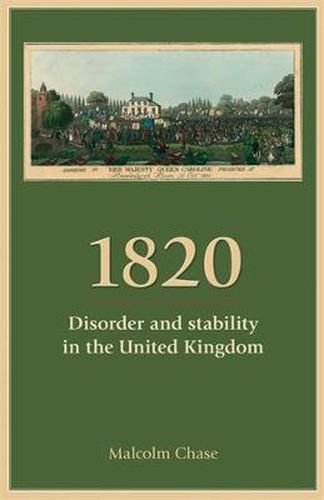Readings Newsletter
Become a Readings Member to make your shopping experience even easier.
Sign in or sign up for free!
You’re not far away from qualifying for FREE standard shipping within Australia
You’ve qualified for FREE standard shipping within Australia
The cart is loading…






Integrating in detail the experiences of both Britain and Ireland, 1820 provides a compelling narrative and analysis of the United Kingdom in a year of European revolution. It charts the events and forces that tested the government almost to its limits, and the processes and mechanisms through which order was maintained. This book will be required reading for everyone interested in late-Georgian and early nineteenth-century Britain or Ireland. 1820 is about much more than a single year. Locating the Queen Caroline divorce crisis within a broader analysis of the challenges confronting the government, it places that much-investigated episode in a new light. It illuminates both the pivotal Tory Ministry under Lord Liverpool and the Whigs (by turns febrile and feeble) who opposed it. It is also a major contribution to our understanding of popular radicalism and its political containment. – .
$9.00 standard shipping within Australia
FREE standard shipping within Australia for orders over $100.00
Express & International shipping calculated at checkout
Integrating in detail the experiences of both Britain and Ireland, 1820 provides a compelling narrative and analysis of the United Kingdom in a year of European revolution. It charts the events and forces that tested the government almost to its limits, and the processes and mechanisms through which order was maintained. This book will be required reading for everyone interested in late-Georgian and early nineteenth-century Britain or Ireland. 1820 is about much more than a single year. Locating the Queen Caroline divorce crisis within a broader analysis of the challenges confronting the government, it places that much-investigated episode in a new light. It illuminates both the pivotal Tory Ministry under Lord Liverpool and the Whigs (by turns febrile and feeble) who opposed it. It is also a major contribution to our understanding of popular radicalism and its political containment. – .